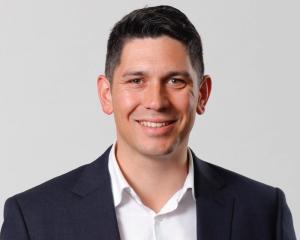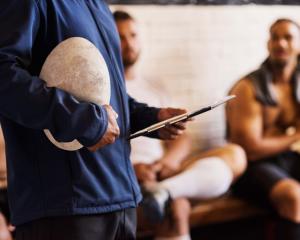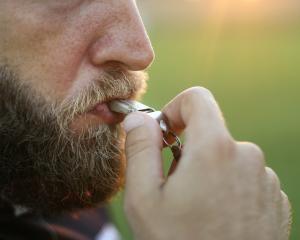
Grainne Moss, the Secretary for Children and Chief Executive of Oranga Tamariki – the Government’s child protection agency – has resigned after four years in the position.
In announcing her resignation, Public Service Commissioner Peter Hughes said, “Mrs Moss is a dedicated public servant and leader who had made a number of significant improvements in what was one of the biggest and toughest roles in the Public Service”.
During Mrs Moss’s tenure, he explained that “fewer children and young people have entered care, social worker caseloads have been reduced, investment in iwi/Maori services has doubled and the agency has developed new whanau care partnerships with iwi and Maori organisations”.
Mrs Moss will take up a new role as Chief Executive leading the Public Service’s pay equity work on 1 March. Sir Wira Gardiner, the founding Director of the Waitangi Tribunal and founding Chief Executive of the Ministry for Maori Development, has been appointed into the role while a permanent head is found.
The resignation of Grainne Moss marks the culmination of an orchestrated witch hunt against her by tribal interests seeking control of child protection services. They have long coveted the power and resources of this $1 billion agency and have relentlessly called for its disestablishment.
Since the Chief Executive stood in the way of their objective a vicious campaign was waged to undermine her credibility and force her resignation, with some media taking a leading role.
What her attackers underestimated was Mrs Moss’s resilience and refusal to submit to their bullying. As the first Irish woman to swim the English Channel, she is clearly no stranger to adversity.
However, when the new Minister for Children Kelvin Davis put politics ahead of the safety of vulnerable children and refused to express confidence in the Chief Executive, that became the signal for her to move on – despite widespread support from staff.
Stuff’s Martin van Beynen has described her as collateral damage in a culture war: “What worries me is that the main objection to Moss is that she is not Maori, the assumption being that, if the main clientele of a government service is Maori, a chief executive of that ethnicity would do a better job. The irony is that Moss has transformed Oranga Tamariki into a Maori organisation…”
He explained that a senior manager had contacted him in response to an article he wrote about the agency being treated unfairly, suggesting the narrative should be balanced by showing how their interventions had stopped heart-breaking abuse “which would horrify the public and create moral outrage: the baby who has been abandoned in the hospital by its meth-addicted mum with only a list of three potential fathers by its side; the boy whose mum had taught him that sex with her was fine; the young woman who was being groomed for prostitution by her uncles; the 2-year-old covered in sores who could barely walk due to malnutrition…”
The staff member also pointed out that Grainne Moss was responsible for the fall in the number of children needing care – “she has supported us to work the way we have always wanted – earlier, and in partnership with families, with a better level of resources… She is the most visible and approachable leader I have ever had.”
The campaign for tribal control of child protection services began in earnest in May 2019, when Ministry for Children social workers were filmed while attempting to uplift a new born baby deemed by Court order to be at risk of abuse.
According to the Ministry, uplifting a child is a “last resort”. The decision is made by a team of social workers, who have to convince a Family Court Judge that a child is at such serious risk of harm that removal is necessary.
The incident sparked a number of inquiries into child protection practices, including by the Children’s Commissioner, whose Office appears to have now become radicalised. They published two reports, with their most recent, “Te Kuku O Te Manawa: Moe ararā! Haumanutia ngā moemoeā a ngā tūpuna mō te oranga o ngā tamariki” (which does not seem to have been given an English title), calling for the introduction of “by Māori, for Māori approaches that are enabled by the transfer of power and resources from government to Māori.”
Such a reckless recommendation to embrace the politics of Maori sovereignty and categorise vulnerable children by race instead of need, surely brings the Office, which has a statutory responsibility to advocate for all New Zealand children, into disrepute.
Brian Giesbrecht, a retired Canadian Chief Justice, who, with 30 years of experience in dealing with indigenous child abuse cases provided the NZCPR with a report on New Zealand’s Maori Child Welfare Problem in 2019, strongly advises against categorising children by race: “When I became a judge in 1976 they were just starting to talk about turning the control of child welfare agencies over to Indigenous groups. This changeover took place during the 1980s, and 90s. The theory advanced by Indigenous advocates was that there were far too many Indigenous children in care because white child care workers did not understand Indigenous culture and the Indigenous way of life. If only Indigenous workers and supervisors could take over, the numbers would go down.
“For the next two decades a combination of incompetence and ideological zealotry condemned many Indigenous children to bleak lives. Children were regarded as the property of Indigenous tribes, and this lead to tragedies. Children who had been in stable homes with loving parents since birth were taken from their homes and placed in Indigenous homes, simply because the foster parents were not Indigenous.”
This is already happening in New Zealand with reports that four Maori children who were removed from a violent home by Oranga Tamariki in 2018 into a permanent placement with non-Maori foster parents, were taken away from their home and given to extended family last September.
In Canada, many children died while supposedly in the care of these new indigenous agencies, and the former Chief Justice strongly suggests that the only test should be the best interests of a child to grow up within a loving and stable family.
With tribal leaders seeking to use the strong political influence they now have in Parliament to expand their power base into governance, it is timely to reiterate the warning given by former US President Barack Obama, who, with a Kenyan father, understood only too well the destructive influence of tribalism: “Ethnic-based tribal politics has to stop. It is rooted in the bankrupt idea that the goal of politics or business is to funnel as much of the pie as possible to one’s family, tribe, or circle with little regard for the public good. It stifles innovation and fractures the fabric of the society. Instead of opening businesses and engaging in commerce, people come to rely on patronage and payback as a means of advancing. Instead of unifying the country to move forward on solving problems, it divides neighbour from neighbour.”
Unfortunately, the sad reality in New Zealand today is that vulnerable families are regarded as a money-making resource by tribal leaders. They are peddling the lie that only Maori can provide solutions to Maori disadvantage in the hope of securing Government contracts that remain in place for as long as families remain mired in the cycle of disadvantage.
It remains, however, the core responsibility of Government to protect citizens from harm, especially vulnerable children. It is not a role that can be delegated to unaccountable private agencies.
A 2019 report by the Ministry for Children into the harm of children in State custody, identified why leaving children in the care of unsuitable parents is so dangerous: “the majority of the harm to Maori children happened in placements where they had been left with their family… parents were responsible for most of the cases of emotional harm and neglect – and much of the neglect was related to the parents’ drug use. Some of the neglect also involved young children being left unsupervised for significant periods of times on a frequent basis – sometimes during the night. The majority of physical harm was caused by parents and caregivers.”
This week’s NZCPR Guest Commentator is Dr Michael Bassett, a former Labour Minister of Health and Waitangi Tribunal member, who has been closely following this saga:
“There is something genuinely nauseating about the witch hunt that removed Grainne Moss from the head of this state entity. Naida Glavish salivating on TV about her exit; the sight of those middle-class Maori Dames, fulminating against a Pakeha trying to do the right thing for young Maori. Did any of them stop to ask themselves why, when Maori constitute 15% of the population overall, they make up 60 to 70% of the children whose lives are in such a parlous state that they need to be removed from their natural parents? Why are they blaming others? It’s not colonialism, or institutional racism, and nor is it any failure on Oranga Tamariki’s part.
“Let’s scratch the surface of the problem beneath the slogans uttered by these kuia. In 2019, 79.5 percent of Maori babies were born to unmarried mothers compared with 35 percent of non-Maori. The same year over 6,000 parents added a new born to their existing welfare benefit – one in ten of all babies born that year. For Maori the ratio doubles to one in five. Children on a benefit from birth are more likely to experience abuse and neglect, material hardship, poorer health and educational outcomes, and contact with the Oranga Tamariki and the justice system…
“But when did you last hear any of our righteous kuia advocating more resources for family planning? Did any of them utter a warning as Sir Apirana Ngata would have, when Jacinda Ardern’s government gave mothers a baby bonus in 2018 for new children born to beneficiaries, thus incentivizing the production of even more potential recruits for Oranga Tamariki?”
Dr Basset has identified the problem that is at the heart of the child abuse crisis – women on welfare in unstable family conditions having children and relying on benefits for support, instead of the fathers.
Back in 1968, when 72 percent of Maori babies were born to mothers who were married, with 89 percent for non-Maori, there was no child abuse crisis. A survey carried out at the time showed that fewer than three children per 10,000 aged under the age of 16 were abused. But by the early 21st century, largely as a result of the introduction of the single parent benefit, the rate of substantiated child abuse cases had skyrocketed to around 70 children per 10,000 aged 16 and under.
New Zealand’s child abuse problem is largely due to the incentives in public policy that encourage children to be born into homes that do not provide them with the stability of two loving parents.
Changing those incentives should be the Government’s top priority if it genuinely wants to reduce child abuse. Categorising vulnerable children by race and giving full control of their lives to private tribal organisations, would be a gross abrogation of the Government’s duty – to protect those who cannot protect themselves.
Minister Davis says he has “no concrete plans” for changing the agency – but he has appointed to an all-Maori advisory board four strong supporters of Maori sovereignty.
He claims to have a “laser-like focus on the needs of our children and making sure that they have the opportunity – like you and I had – to grow up in strong, loving families.”
What he does in June, when his advisory board reports back will be a real test of his Government – if they embrace the politics of separatism and division that will undoubtedly be recommended, to remodel child protection in New Zealand along racial lines, then we will know his fine words about prioritising the real needs of children are just empty rhetoric.













